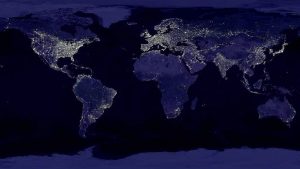A Prediction for the World Energy Market
 The planet, and its inhabitants, needs to supply both food and water for everyone who lives on earth. That requires power, which is only a means to an end, but still no less important than the biproducts themselves.
The planet, and its inhabitants, needs to supply both food and water for everyone who lives on earth. That requires power, which is only a means to an end, but still no less important than the biproducts themselves.
Although the percentage is shrinking steadily over time, fossil fuels still make up most of the supply of energy for developed nations. In America, however, uranium is beginning to help cut down on fossil fuel usage. Hydrogen power is also seen as viable, but there is no single energy source that can solve all of the problems that come with feeding an entire population. “Nuclear provides about 20% of American energy mix,” says Dev Randhawa, CEO of Fission Uranium, “and a lot of countries see that as the best combination.”
And that’s the key: a combination of power sources will help improve the ability of the power grid to efficiently utilize power. Randhawa, in the past, has discussed the baseload demands of the energy grid. As countries like India or Saudi Arabia ramp up industrialization, the power grid will experience black or brownouts. This is a frequent occurrence already in India, where consumers may spend several hours each day without power.
While renewable energy will become an important source to augment the power grid, that baseload isn’t something renewable energy can handle easily.
While reducing demand will help, it’s not exactly feasible to ask developing nations not to turn their lights on. Work needs to be done in order to progress as a civilization, so clean and efficient power is a necessary means to that end.



